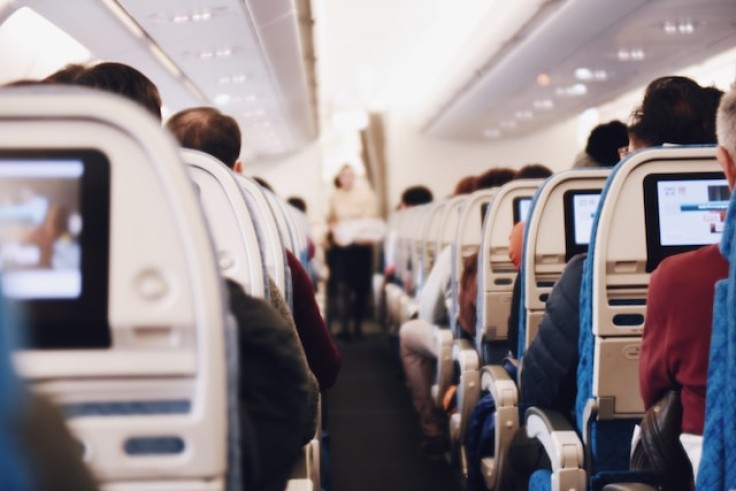
People are flocking to social media in support of a woman who stood her ground and refused to switch seats on a plane with a mother and her children. Tammy Nelson, CEO and founder of CONQUERing, made headlines when she shared her experience on TikTok, according to Insider.
People Rally in Support of Woman Who Refused to Switch Seats on a Plane with a Mother and Her Children
In the viral video posted on the TikTok account @myconquering, Nelson can be seen sitting in her seat next to the window, not having switched.
The caption reads: "What would you do?
"I got on the plane and a woman was sitting in my seat, and when I mentioned it to her, she said, 'Oh, you want to sit here? I thought we could switch because these are my kids.' She points to the two seats next to mine.
"I said, 'As long as it's a window seat, I'm happy to switch.' She points to the row behind us and says, 'Mine is right there.' (It's a middle seat)."
According to LAD Bible, people have poured into the comments on the post to stick up for Nelson's decision to not move seats.
One TikTok user said: "The amount of families who aren't paying to select their seats together is mind-blowing! You were 100 percent right to not give up your seat."
"For her to assume and sit in your seat before asking you is already a huge no," another added.
And a third resolved: "People should book seats together if they want to sit together."
Nelson later told Newsweek she declined moving seats to a middle seat as opposed to a window seat because she suffers from 'motion sickness during takeoff and landing if [she] can't see out the window'.
She says, "I also don't get a lot of sleep. I often try to get a little sleep on planes, which is easier with a window seat.
"On that particular day, I only had 90 minutes of sleep the night before. And I was headed into a high-pressure work week where I would be presenting to 500 people and really needed to be at my very best, so getting a little sleep on that flight was extra-important."
Unfortunately for Nelson, the rest of the journey didn't go much smoother; the mom was super annoyed' she wasn't willing to swap and spent 'at least 15 minutes' complaining about it to another passenger.
However, like the TikTok commenters, Nelson thankfully received support from the other passenger who stuck up for her, appreciating the mom's desire to sit next to her kids but noting she should 'plan ahead' next time and talk 'with the airline in advance or talk to the gate agent'.
'Grateful' for the support, Nelson notes the fellow passenger also flagged the additional cost of selecting seats for the mother.
The CEO said: "Clearly the woman just expected that I would make a change to meet her needs, not considering what she had done (or not done) that put her in that situation.
"She just expected me to flex my plans to suit her needs. There seems to be a growing trend of this entitlement in society, and I think people are just sick of it."
Ensuring Family Seating on Flights: Key Strategies and Recommendations
This incident sheds light on the importance of planning seating arrangements in advance, especially when traveling as a family, to avoid conflicts. It also highlights the power of social media as a platform for sharing experiences and garnering support from others who can relate to similar situations.
Accoding to Made for Mums, there are strategies families can employ to increase their chances of sitting together on a flight. Some airlines, such as British Airways, Air France, KLM, American Airlines, Delta, Emirates, and Jet2, guarantee to seat children under 12 next to at least one parent free of charge. Other airlines, like TUI, Virgin Atlantic, Norwegian Air, and EasyJet, aim to seat children close to accompanying adults but cannot guarantee adjacent seats.
To ensure seating together, families can consider reserving seats in advance, especially for partners or adults traveling with children over 12. Some airlines, such as Virgin Atlantic, Qatar Airways, and Japan Airlines, allow free seat reservations upon booking. British Airways offers seat reservations when check-in opens, and easyJet assigns seats on a first-come, first-served basis.
If booking seats together is not feasible, arriving at the airport early and politely requesting seat changes at the check-in desk may increase the chances of sitting together. However, if all else fails, families can try asking other passengers to swap seats, although this should be seen as a last resort.
Overall, this incident underscores the importance of proactive planning, communication with airlines, and respectful behavior when it comes to seating arrangements during air travel.